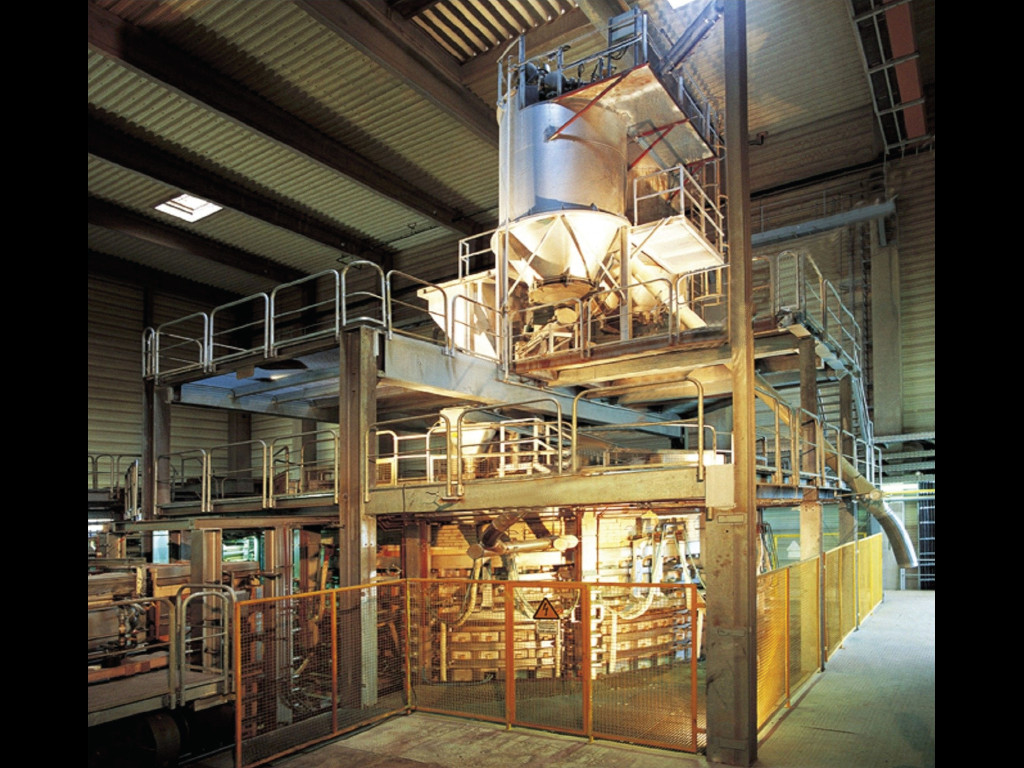SORG’s electric melting team includes electrical engineers, mechanical engineers and industrial management assistants. Technical development and pre-engineering are included in the quotation phase, with all calculations and key equipment design carried out in-house.
Systems are tailor-made to individual customer needs and boundary conditions. Technical documentation is provided to help resolve day-to-day problems, while commissioning support and free after-sales monitoring helps to advise when electrodes need pushing or replacing, along with expert maintenance assistance from SKS/Sorg Feuerungsbau.
Melting glass, not glaciers
In light of the target set by the Paris Agreement to reduce carbon emissions to net zero by 2050, the global glass industry is facing a huge challenge to find more renewable energy sources. The overall disadvantage also of modern glass melting furnaces is that they are fossil-fuelled, with many installing electric heating only to increase melting performance and glass quality.
As high energy-intensive installations, furnaces continue to produce significant CO2 through the combustion of fossil fuels. Efforts are underway to reduce CO2 emissions and slow down global warming. The European Union goal for climate neutrality by 2050 means the complete eradication of fossil fuels, leaving electrical energy as the most logical alternative.
All-electric origins
The cold top vertical melting principle of SORG’s Vertical Super Melter has proved to be the best technology available for glass furnaces using only electricity as their energy source.
Patented in 1970, the VSM produces all kinds of glass, especially high quality glassware ranging from borosilicate glass to tableware. The all-electric melter’s main strength lies in how easy it is to run. Without combustion and waste gas treatment equipment, only a small number of auxiliary aggregates have to be installed, operated and maintained. This, along with the general furnace design, results in a shorter repair downtime.
Solely electrically heated, it produces no CO2 emissions during the melting process and reduces energy consumption in a number of distinct ways. No energy is lost in terms of large quantities of waste gas, only generating a relatively small amount from the decomposition of raw materials in the batch (batch gases), as well as water vapour from raw material humidity. Removed from the furnace superstructure and cleaned by a small baghouse filter, this prevents in-factory dusting and the clean waste is released into the environment without any further treatment.
As the main process steps take place in the vertical direction of the furnace, the outside surface area of the cylindrical melting tank is relatively small.
SORG’s rotating crown batch charging system achieves a perfectly even coverage of the melt with a layer of raw materials. This batch blanket acts as an insulating layer on top of the melt and an integrated batch preheater, resulting in superstructure temperatures of between only 150°C and 300°C.
Increased demand for all-electric melters in localities with high environmental requirements has led to urban glass producers being allowed to extend production capacity only by switching to a furnace technology that avoids emissions of air pollutants like sulphur dioxide or nitric oxides. In areas with high hydro power potential or limited supply of natural gas, electricity is the cheapest energy available.
Reduced carbon footprint
For the global glass industry, the greatest challenge is to reach climate neutrality in a foreseeable period. The future of glassmaking requires sustainable melting technology. Classical combustion technology, like the regenerative firing principle that has been used for more than 150 years, will soon be gone.
The concepts of hybrid melting and alternative combustion fuels still have a long way to go. All-electric melters have proven technology and may see a renaissance in the production of special glasses. By implementing certain process changes, they make an ideal alternative for mass produced glasses like containers.
Even though such a long-term commitment is extremely difficult due to undefined boundary conditions, it is possible to commission a first design stage melting furnace almost conventionally today. Simply by boosting shares of more than 10% in the total energy and increasing the use of electricity over time in accordance with the changing regulations, this furnace concept has the advantage of greater flexibility, especially if there is the possibility of future fossil heating using green hydrogen.
The need to reduce emissions is now more important than ever. And as long as there is a sufficient supply of carbon-neutrally generated electric energy, the only solution for sustainable glass production is electric melting.
The VSM Vertical Super Melter is a registered trademark.


